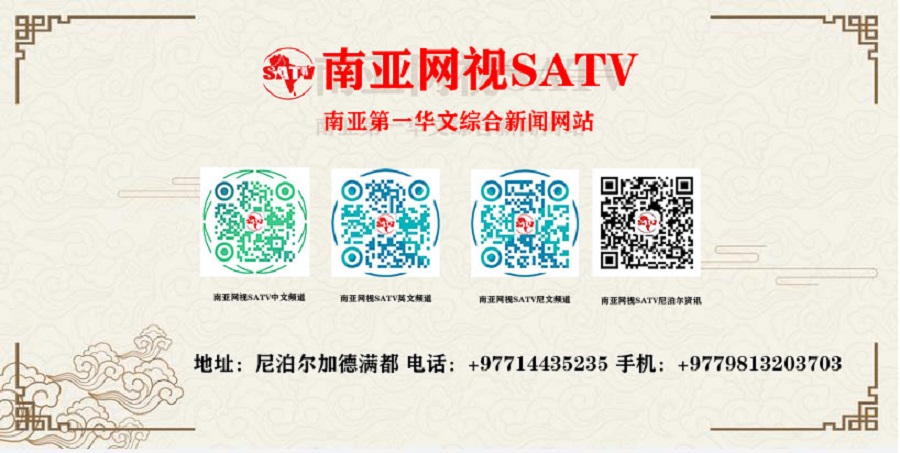CPN-UML, the country's largest party, splits. Madhav Nepal now leads the CPN (Unified Socialist).

On Wednesday, when a group of communist leaders led by Madhav Kumar Nepal, former general secretary of the CPN-UML, was headed for the Election Commission to register a new party, UML chair KP Sharma Oli was addressing a press conference after “welcoming” 10 dissidents under his wing.
Wednesday marked a rare moment in Nepal's political history. The country's largest party had split, yet the largest party was claiming to have united.
Nepal registered a new party–CPN (Unified Socialist)–with the support of 29 lawmakers and 55 Central Committee members. Oli continues to chair the CPN-UML, the short form for the Communist Party of Nepal-Unified Marxist Leninist.
The “unified” communist party may have been cleaved into two, but both continue to have “unified” in their names, in what observers term an irony of Nepali politics.
There’s no clarity yet about the ideology of Nepal’s newly-registered party, which has broken away from the one that has espoused “People’s Multiparty Democracy” as its guiding principle since 1993. The CPN-UML, however, has faced criticism for failing to fully adhere to People’s Multiparty Democracy, a principle propounded by the late comunist leader, Madan Bhandari.
“This split has nothing to do with any ideology or principle,” said CP Mainali, long-time communist leader who currently leads the CPN-ML. “The UML split because of leaders’ egos and ambitions.”
Mainali himself was an active politician of the CPN-UML until 1997. After differences with then leadership over the Mahakali Treaty, he, along with Bamdev Gautam, Ghanashyam Bhusal and others, had parted ways and formed the CPN-ML.
However, after the party failed to win even one constituency in the 1999 elections, Gautam and Bhusal returned to the mother party. Mainali chose to continue leading the CPN-ML.
Until a few days ago, Bhusal, who redefined People's Multiparty Democracy as a political programme, was with the Nepal faction, fighting against what they called Oli’s highhanded attitude and unilateral style of running the party.
Bhusal's political programme was endorsed by the party's ninth general convention held in 2014, which also elected Oli as party chair.
Bhusal was among the 10 leaders who were earlier with the Nepal faction to have returned to the mother party, the UML, saying they would continue their struggle against Oli by remaining within the party.
“You may have doubts over how the UML will function,” Bhusal told the Post in a brief interview. “But the new party under Nepal's leadership is surely not going to work.”
According to Bhusal, the party saw a split because of “regimentation” and coterie culture.
“What is Nepal going to do? Now he will join the Sher Bahadur Deuba government. The most likely scenario is there will be changes in governments in Province 1 and Bagmati,” said Bhusal. “The split in our party will have some immediate aftereffects like this. But will Nepal be able to sustain his party is the question.”
Nepal's fight with Oli is not new. While Nepal led the UML for 15 years from 1993, Oli rose through ranks to become the party chair. After the UML's merger with the Communist Party of Nepal (Maoist Centre) in May 2018, Oli and Pushpa Kamal Dahal became joint chairs of the Nepal Communist Party (NCP).
But differences started soon after. While Nepal had his own axe to grind against Oli–and vice versa–Dahal was searching for some space in the Nepal Communist Party (NCP).
As Dahal and the Nepal faction built pressure on Oli last year, the latter dissolved the House in December. The Dahal-Nepal group built a front against Oli, but the Supreme Court in March invalidated the Nepal Communist Party (NCP) and revived the UML and the Maoist Centre, thereby putting both Dahal and Nepal in a precarious situation.
Though the Nepal faction was struggling to create space within the UML, Oli again in May dissolved the House. The Nepal faction rallied behind the Congress-Maoist Centre alliance to install Deuba as prime minister.
Though some second-rung leaders were making attempts to patch up differences between Oli and Nepal, the Deuba government on August 17 introduced an ordinance easing the provisions for party splits.
Sources said that Nepal's CPN (Unified Socialist) is preparing to join the Deuba government within one week. It was not immediately clear how many from the Nepal group will get ministerial berths in the Deuba Cabinet.
“We will now chart out our strategy,” said Beduram Bhusal, a senior leader close to Nepal. “Our focus will be on expanding our party organisation across the country.”
As elections are round the corner–local polls are due in seven months and general elections next year–Nepal's new party has a tough time ahead.
Bhusal ruled out the newly-formed party's unity with other “like-minded” forces anytime soon but said negotiations will continue.
“There is no possibility of unity with other forces at the moment. We'll join hands with political forces on the basis of issues and agenda,” Bhusal told the Post. “At this juncture, we have to focus on building the party.”
Metmani Chaudary, a lawmaker of the newly-registered CPN (Unified Socialist), however, said that the process of party unity with other like-minded political forces will begin after three-four months.
“We are considering unity between our party and the Maoist Centre,” said Chaudhary.
Senior communist leaders, who have been part of the UML in the past say new political dynamics is emerging in the country but the Wednesday break-up is a setback for the communist movement.
Mainali, a senior communist leader, said Nepal's communist parties are failing to adhere to the spirit of Marxism.
“Capitalism rules the roost in communist parties these days. Groupism and factionalism have thrived. The culture of collective decision making has vanished,” said Mainali. “When there is no system, anarchy prevails in organisations and parties. I think today's is a sad incident in Nepali communist history.”













